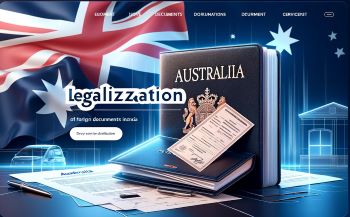Legalization and apostille are processes used to authenticate documents for use in foreign countries. The specific method you need to follow depends on the country where the documents will be used. Here are general steps to obtain legalization and apostille:
Legalization:
Legalization is a process where a document is authenticated by various authorities to ensure its validity in a foreign country. The process typically involves the following steps:
Apostille:
An apostille is a simplified form of legalization and is typically used for documents that will be used in countries that are part of the Hague Apostille Convention. The steps include:
Where to get Authentication or Apostille in Australia
In Australia, Authentication or Apostille may be applied through Department of Foreign Affairs and Trade (DFAT) either by Post or in Person. From 1 May 2024, legalization by mail, may be sent to Melbourne or Sydney Passport Office address. The Request Form can be downloaded from the Smartraveller website at https://www.smartraveller.gov.au/our-services/notarial-services/notarial-forms.
Document with the Request Form can be sent to either
Australian Passport Office Authentication Section – GPO Box 2239 Melbourne VIC 3001 OR
Australian Passport Office Authentications Section – GPO Box 2239 Sydney NSW 2001
Appointment can be made online to present the document for legalization at each state’s passport office, appointment may be booked online at https://www.smartraveller.gov.au/consular-services/notarial-services/documents-in-australia.
List of Consular in Australia
Consulates in Australia can be found at DFAT website https://protocol.dfat.gov.au/Public/ConsulatesInAustralia.

